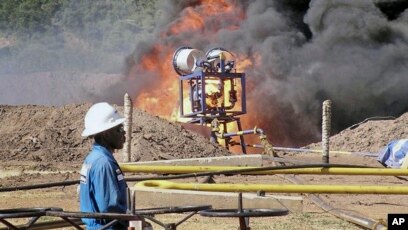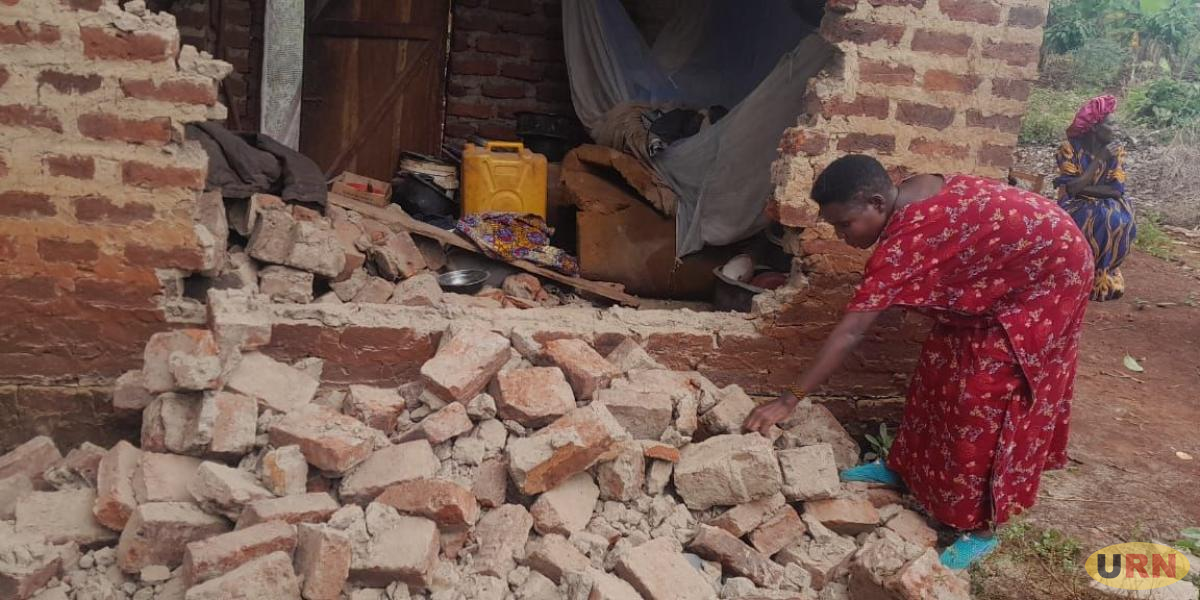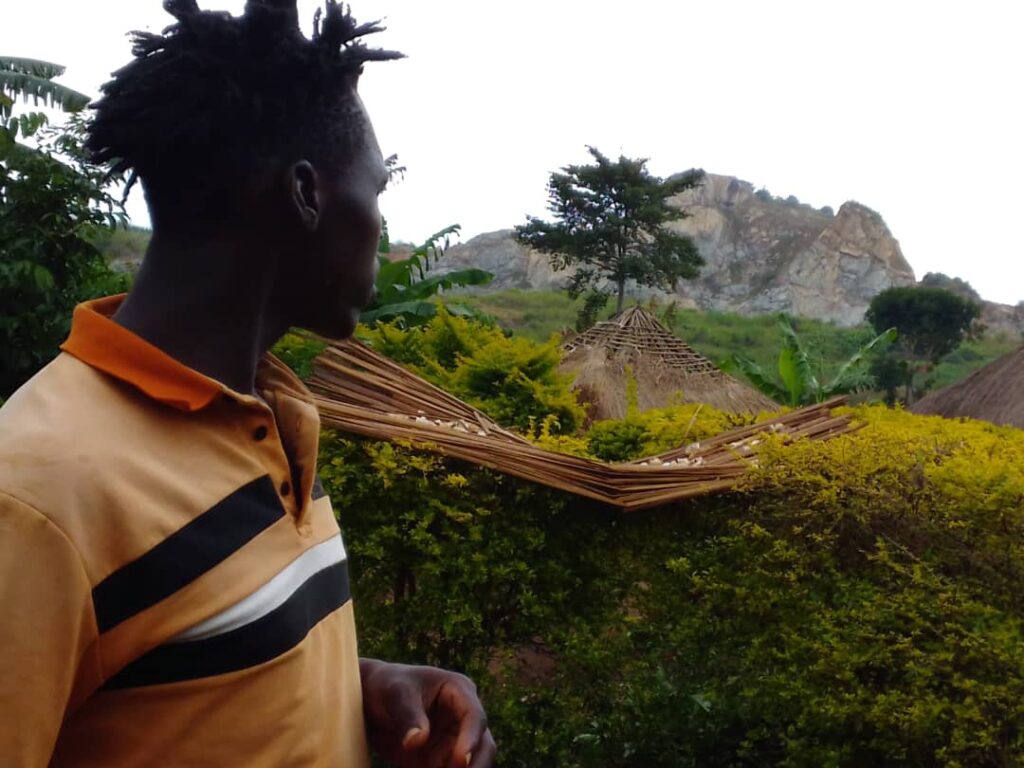It began quietly. Then, the blasts came.
In Kyakasato Village, nestled in Kigorobya County of Hoima District, life used to move with the rhythm of farming seasons, local gatherings, and the hum of everyday routines. That changed in May 2024, when a Chinese-owned stone quarrying company arrived. With them came the heavy machinery, the distant tremble of explosives, and a promise—a promise that the people, whose land and lives would be disrupted, would be fairly compensated.
Nicholas Byaikya remembers the first explosion. “It was like thunder in the earth,” he says. Houses trembled. Dust filled the air. And when the rumbling faded, new cracks had appeared in walls that had stood firm for generations. Crops wilted under the weight of fine, toxic dust. Some families, frightened and unable to live safely in their homes, began packing their belongings. Displacement had begun—not by war, not by flood, but by business.

Explosions during pipeline construction operations
Soon after, Nicholas stepped up. The community chose him to lead a newly formed Grievance Management Committee (GMC), tasked with pressing the company for accountability. Meetings were held. Local leaders—including the LC5 and the Resident District Commissioner—got involved. Eventually, the company sat down at the table. It admitted to the harm and pledged to compensate every affected person by May 2025.
But the months dragged on. No payments came. And now, May is almost here.
Empty Promises, Cracked Foundations
The promises once delivered with smiles and handshakes have started to feel like delays by design. With each passing week, more walls fracture. More coughs echo through the community. More children are kept indoors, away from the thick, lingering dust.
Residents are beginning to wonder: was the promise of compensation ever real?
“This is not just about money,” says one mother whose home is now uninhabitable. “We’ve lost our peace, our health, our homes. And they pretend we can wait forever.”
Some of the villagers tried moving to relatives’ homes, others stay in structures now dangerous to sleep in. The psychological toll is growing—residents feel invisible, sacrificed to a system that values stone over human life.

A family counts its losses following an explosion
A Story Too Common, A Struggle Still Unfolding
The events in Hoima reflect a deeper, disturbing pattern. Foreign companies enter with the language of development and partnership, only to operate with disregard for community welfare. What they leave behind are broken houses, broken trust, and stories that rarely make it beyond village boundaries.
But this time, the people are determined to be heard.
Nicholas and his committee continue collecting testimonies, pushing local authorities, and calling on anyone who will listen. “We won’t allow silence to bury this,” he says. “We deserve justice.”
The Road Ahead: Resistance Beneath the Rubble
What lies ahead for Kyakasato Village is not a question of aid or charity—it’s a question of justice in the face of betrayal. The people here have seen firsthand what it means when foreign companies are allowed to operate without accountability. The stone quarry is just the latest chapter in a much older story, one written by powerful actors who believe that rural lives are expendable, that land is just territory to be mined, and that silence can be bought with vague promises.
But that story is beginning to unravel.
The same model of exploitation—masked as progress—has already carved its way across Uganda and Tanzania through the East African Crude Oil Pipeline (EACOP). Backed by oil giants and foreign interests, EACOP has uprooted families, desecrated ancestral land, and endangered vital ecosystems. And all of it in the name of a future that excludes the very people standing in its path.
In Kyakasato, the script is painfully familiar. The explosions from the quarry echoed louder than the company’s promises. Homes cracked. Health deteriorated. Families were pushed off their land, not by natural disaster, but by corporate greed. When confronted, the company promised to make things right by May. And now, May is almost here, and still—nothing.
The residents of Hoima have grown tired of waiting.
They do not want more meetings where men in suits offer rehearsed apologies. They do not need more timelines that stretch into oblivion. They need action. They need repair. They need the truth—that their suffering was not an accident but the predictable result of a system designed to enrich a few at the expense of many.
And yet, even in the midst of destruction, there is something more powerful than fear. There is resistance. There is memory. There is community. The people of Kyakasato are not just demanding compensation; they are refusing to be erased. They are naming the harm, recording the damage, and preparing to confront any force that treats their homes like debris in a development plan.
If justice is to mean anything at all, it must begin here. It must begin with these people—whose voices have too often been silenced by the hum of generators and the roar of machines. Their story is not just about a quarry. It is about a pattern. It is about the legacy of EACOP and every company like it that bulldozes its way through villages and lives.
The question now is not whether these corporations will change. History has already answered that. The question is whether the world will continue to allow it—or finally stand with the people whose land, health, and dignity are being destroyed in plain sight.
Because if Kyakasato stands alone, the damage will spread. But if its struggle is heard, echoed, and amplified, then perhaps the ground will shake again—this time not from bombs, but from justice rising.
No more silence. No more sacrifice. No more EACOP.



